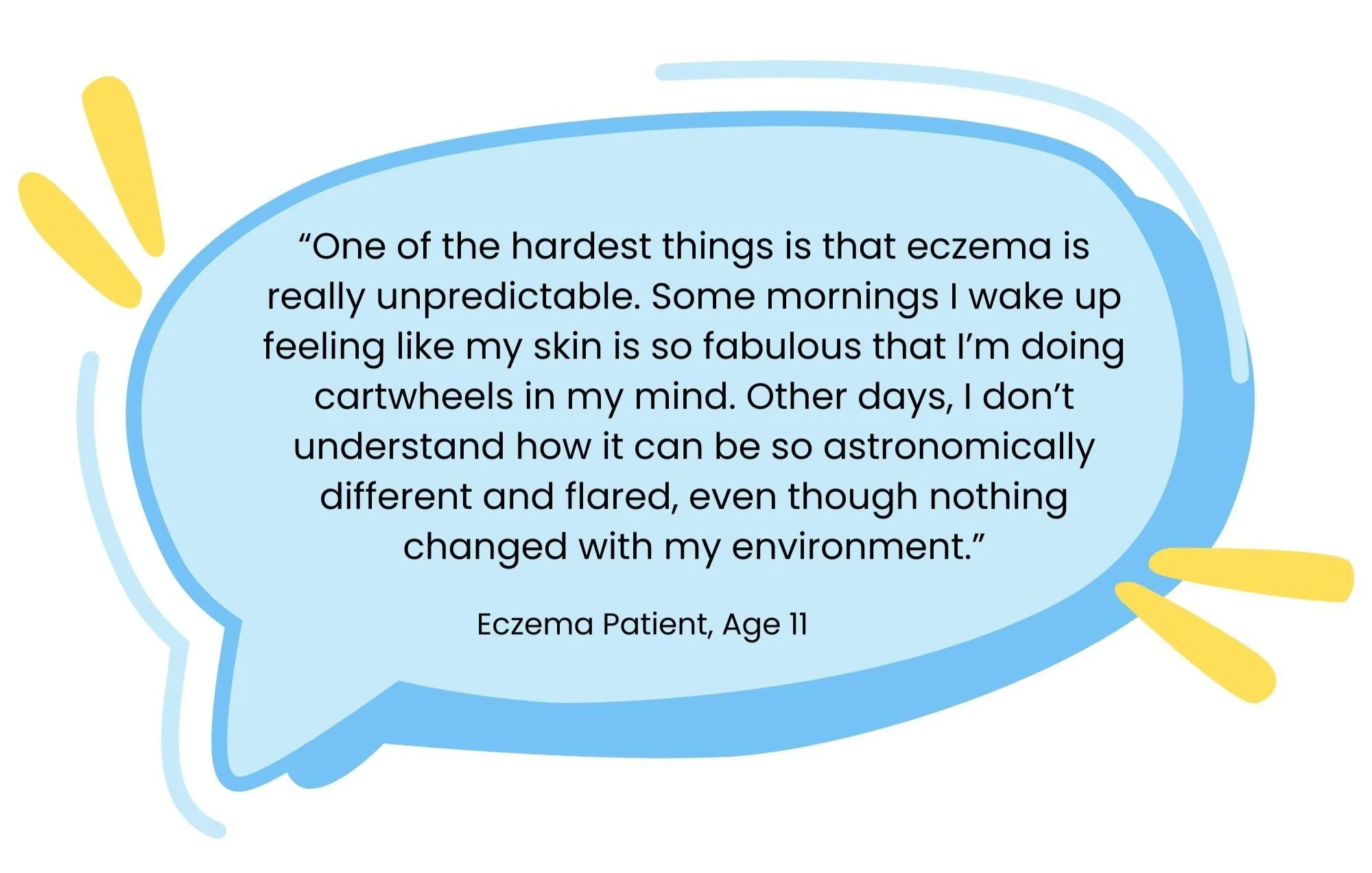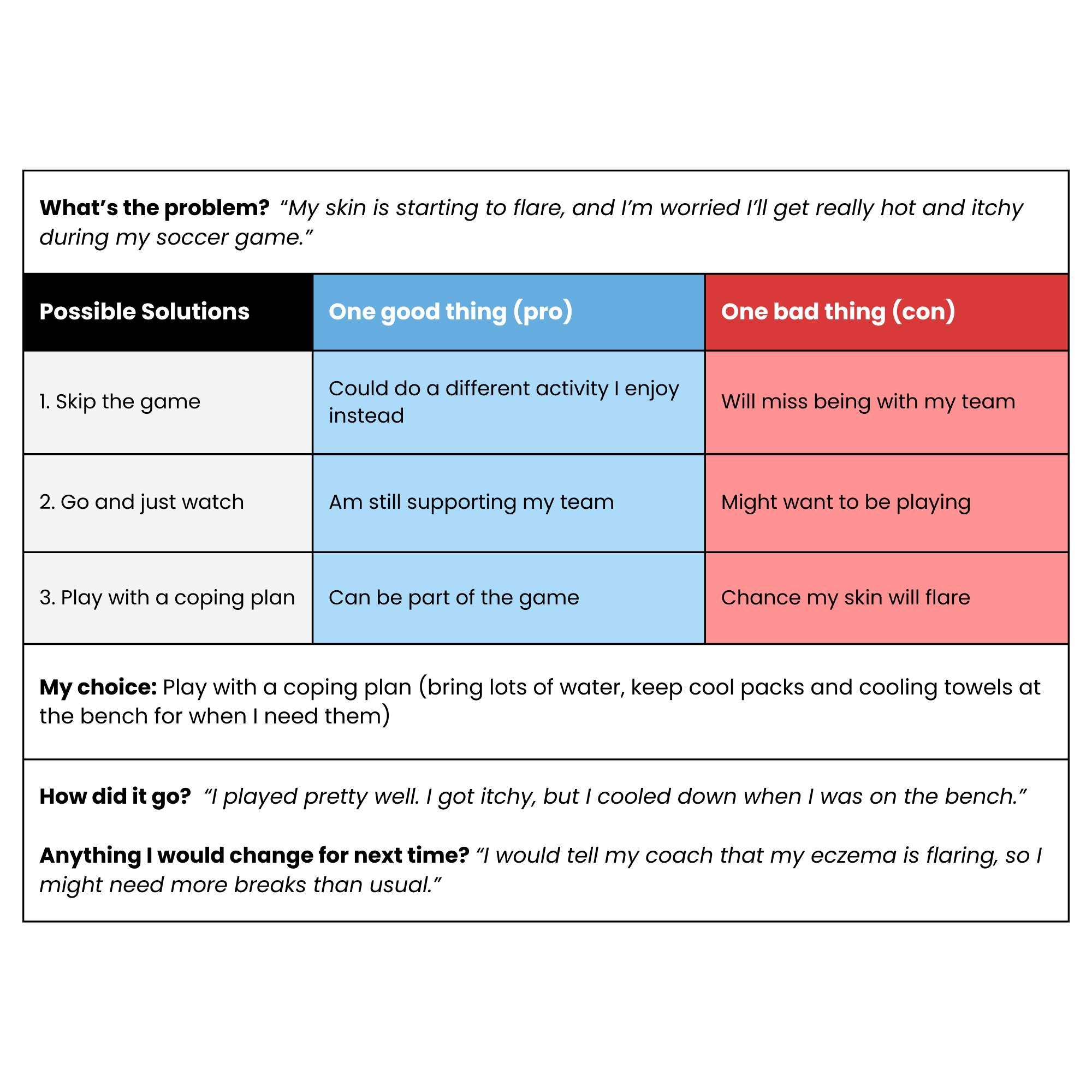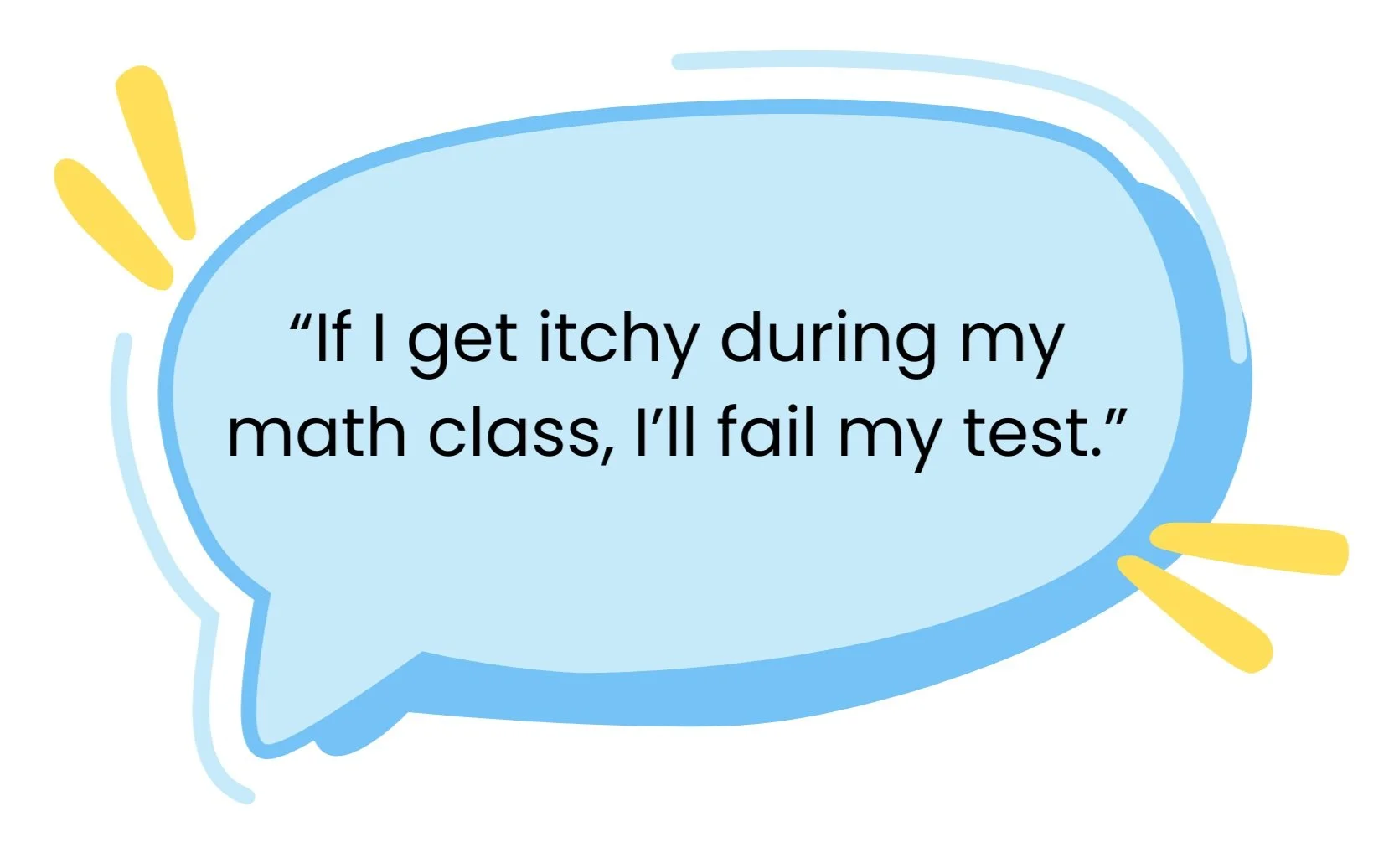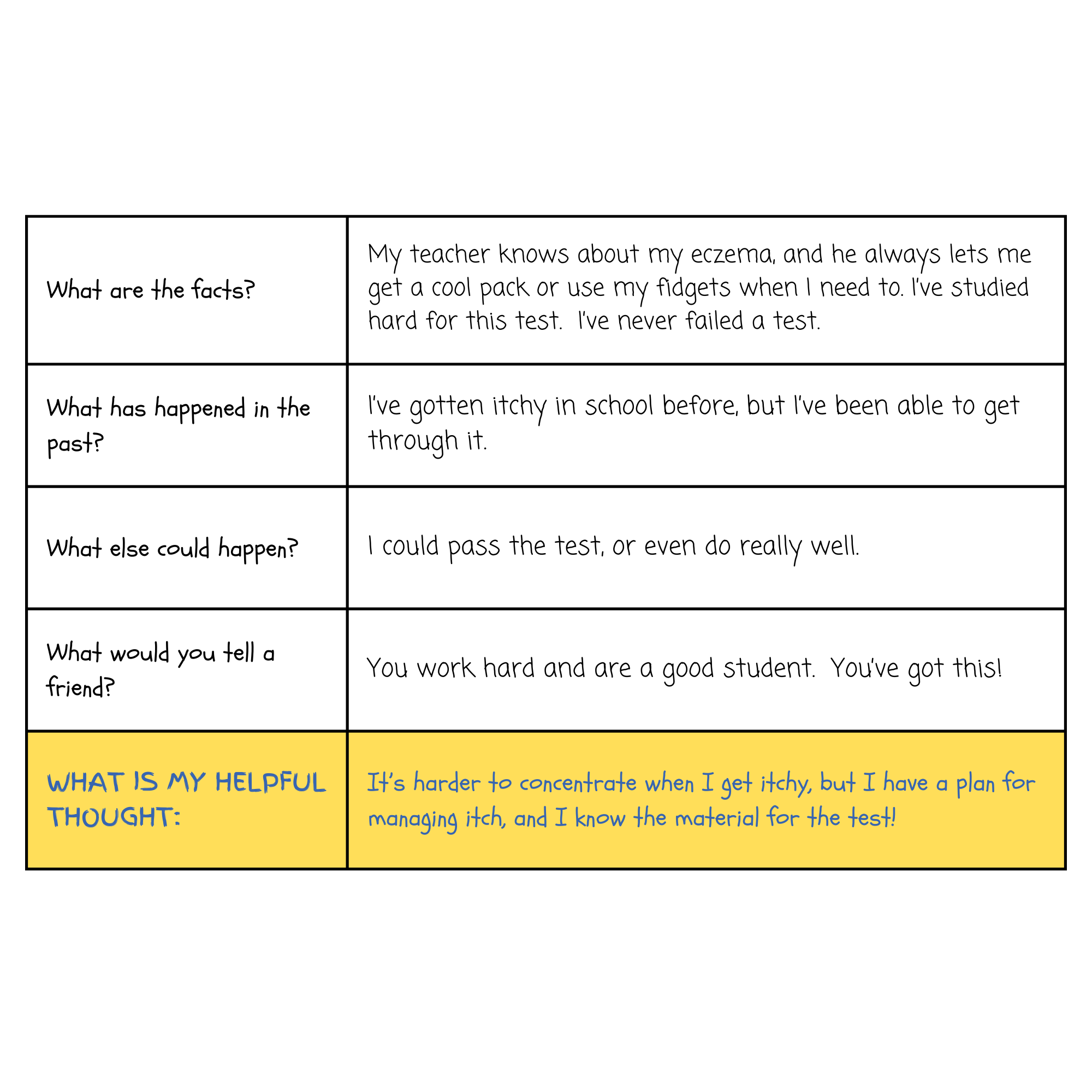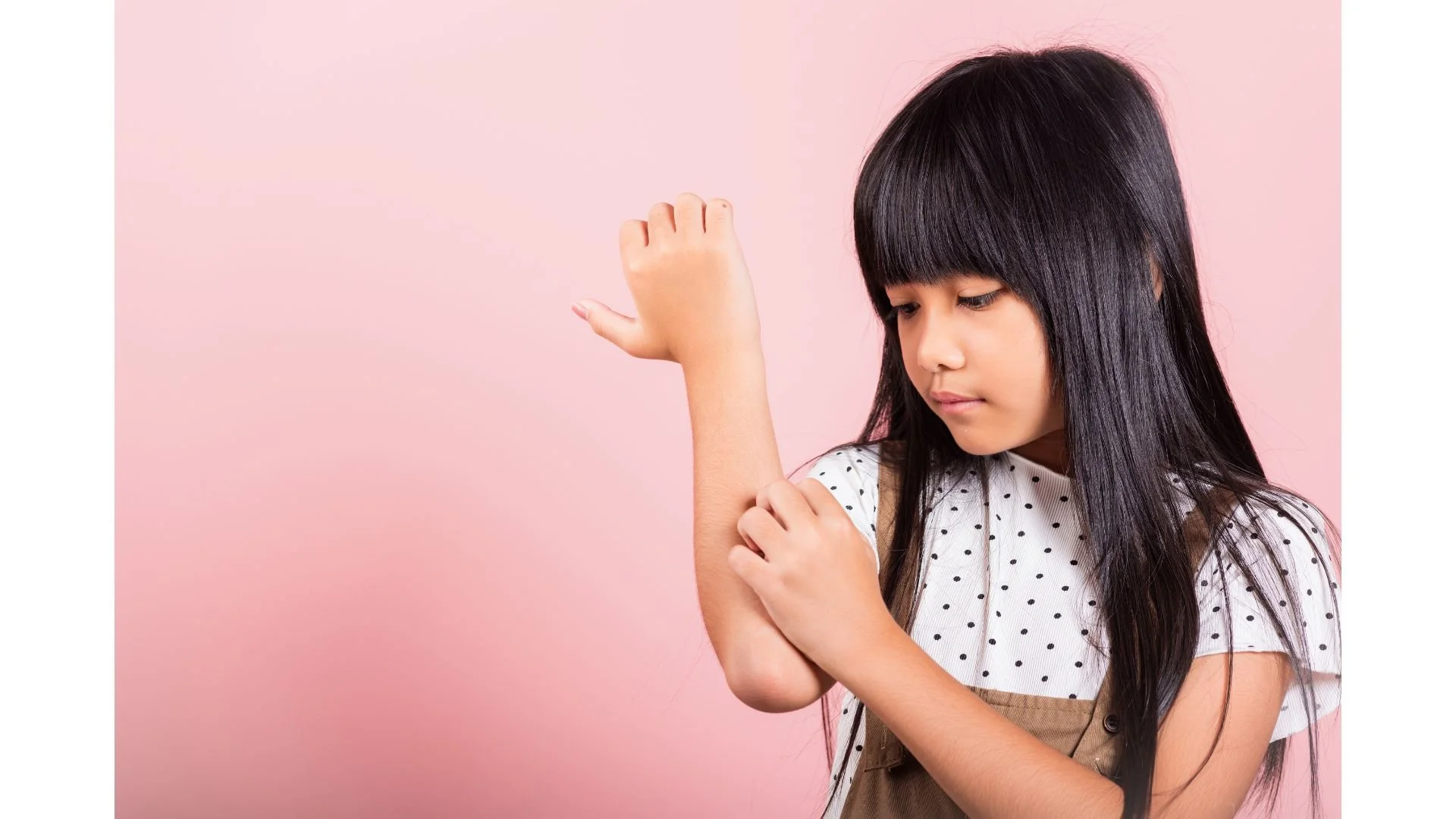Empowering Kids with Coping Skills
Having eczema can be stressful. Sometimes eczema can make it harder for children to do things they enjoy or affect how they feel about themselves. You can help your child build coping skills to manage challenging feelings and situations and feel more confident. Kids should know they are part of a team in coping with eczema!
Helping Your Child Feel Understood
It’s tempting as a parent to jump right in to “fix-it” mode when your child is feeling upset or worried. But it’s really important to start by listening to what your child is feeling and thinking. Let your child know that they can always come to you if they are feeling worried, down, or angry about eczema, or about other challenges they are facing. You can give comfort with a hug (if you think this will help your child) and show that you understand their feelings:
“Having eczema is really hard sometimes.” and “You’re feeling worried about whether other kids will ask about your eczema if you start scratching during gymnastics. I can understand that.”
You can let your child know it’s normal to feel worried, sad or angry sometimes. You can even share times you have felt that way. Sometimes, your child may have a hard time putting their feelings into words. Helping your child identify their emotions and name them can make these feelings more manageable and allow for better coping. Once kids feel like they are understood, they are usually more open to exploring ways to handle a situation. When kids give their feelings a name, this also helps to activate the “thinking” part of their brain that helps them to solve problems.
Using Problem-Solving and Coping Plans to do What’s Important
Eczema flares can be unpredictable and frustrating. Occasionally, your child may have to miss school or a fun activity during a bad flare or if they have a medical appointment.
Sometimes families may notice a pattern, where eczema is getting in the way of their child doing the very things that make them happy or help them to manage stress. For example, children may try to avoid social activities if they feel embarrassed about their skin, or they may stop participating in sports because they worry about itching or skin pain.
While your child can’t choose not to have eczema, you can help them to focus on the things they can control – by helping them to make plans to do the things that are important to them, while also taking eczema into account.
Problem Solving with your child is one way to help them feel in control. This means thinking through various solutions to a problem, including the pros and cons of each solution, and choosing a strategy to try. When your child is involved in thinking through different ways to handle a difficult situation, this helps them to think more flexibly and increases the likelihood they will use their plan.
Afterwards, you can talk about what worked well, and any changes they would make for next time.
Tip: As you are problem solving, only include solutions that are realistic or beneficial. Your child may suggest solutions like “make my eczema go away forever” or “quit the soccer team,” even though soccer is something they enjoy. Gently encouraging them to think of other solutions may give them some control over their current problem. “I wish we could make your eczema go away forever, what is something we could do about this soccer game?”
See the section on Managing Eczema in Other Settings for more ideas for managing eczema during sport/physical activities.
Coping Plans are ideas you come up with in advance, to feel prepared to handle new or challenging situations. Sometimes it can be empowering for your child to write the plan down and make it “official.”
Express confidence in your child when they are doing something that may be difficult for them. “I know you feel a little nervous. I believe in you and know you can do hard things.”
Below is an example of a coping plan to handle going on a sleepover with eczema:
My Sleepover Plan
Remember why this is important to me: “I want to have a fun time with my friends.”
Do my nighttime skincare right before the party
Bringing moisturizer with me, in case I get itchy
Remember I can always use my belly breathing to feel more relaxed
Think about what I can say if someone notices my rash or if I have to put on creams: “It’s just my eczema. I use moisturizer because my skin gets really dry.”
Remember that mom told the hosting parent about my eczema, in case I need help
Remember that if I stay for a bit and decide to come home, that is OK. I took a step towards something that is important to me!
Make sure to praise your child for their efforts in using their coping plans, even if things don’t work out perfectly. This is an important part of helping children learn to handle difficult situations.
Breaking Free from Thinking Traps
Thinking traps can trick kids (and adults!) into believing negative thoughts are true, when they may actually be inaccurate or exaggerated. This can increase stress and anxiety, make kids feel down on themselves, and cause them to avoid important activities or spending time with other people.
Some common thinking traps include:
Fortune telling - predicting that bad things will happen in the future.
Example: “If I don’t wear long sleeves, other kids will make fun of me because of my skin.”
Catastrophizing - believing the WORST thing is going to happen, or making problems seem bigger than they may be.
Example: “If I get itchy during math class, I’ll fail my test.”
All or nothing thinking - seeing things as all good or all bad, when most of the time things are somewhere in between or have good and bad aspects.
Example: “My skin flared again - my eczema will be horrible forever!”
The good news is, once you recognize thinking traps, you gain power over them. You don’t have to just accept a thought as the truth, or let it tell you what to do. Instead, you can develop more balanced, helpful thoughts.
Here are some questions you can ask to help your child become a “thought detective” and examine the evidence for their thoughts:
Here is an example of a thought trap:
How you can work through it:
Talking to Others About Eczema
Talking to Others About Eczema
Sometimes other kids or even adults may ask questions about your child’s eczema. Usually, other children are just curious.
You can talk with your child about the fact that everyone has differences- some that you can see and others you can’t see. Talk with your child about ways that they are different from other kids, and ways that they are the same. It can help to find children’s books that focus on these topics and use them to guide the conversation.
You can also help prepare your child to handle questions about eczema. Although your child can’t control what other people ask, they can control how they respond and what they want to share.
Preparing and role-playing responses can help them feel more confident.
Give eczema a name.
Keep information simple.
Keep the tone neutral or positive – this shows that eczema is not something to be ashamed of.
Most of the time, once other children get some simple information about eczema, this reduces questions and they move on to other things. However, if your child feels uncomfortable, they should know that it is okay to set limits.
“I’ve answered your question and I’m not talking about it more.”
“I don’t feel comfortable answering that question.
“I don’t really feel like talking about that. Want to play a game?
It can also help to talk with your child’s teacher about your child’s eczema and language you use to explain it, so that they can help if needed. Depending on your child’s age, their preferences and what the school can provide, you can also consider other ways to educate classmates about eczema. This could include reading a children’s book about eczema, the school nurse teaching about eczema as part of a health lesson, and/or the child sharing their experiences if they are comfortable. More information about managing eczema at school may be found in Managing Eczema in Other Settings.
Many children find that it helps when their close friends know about their eczema, they are good sources of support and encouragement. Once friends know about eczema, it isn’t a “big deal” or something that needs to be explained every time. As your child gets older, you can help them think through who they want to know more about their eczema, such as new friends – based on what feels comfortable to them.
Helping Your Child Identify Their Strengths and Superpowers
Having eczema is part of who your child is, but it doesn’t define them. To build self-esteem, you can help your child identify their interests and find activities that they enjoy. This could include structured activities, like karate or being in the school play, or hobbies like making Lego creations, baking or hiking.
You can point out and praise specific times that your child shows positive qualities, such as being honest, caring, helpful, or working hard at something. You can also talk with your child about what qualities or accomplishments make them proud of themselves.
You can also ask your child if there are any strengths or “super powers” they have developed or things they have learned about themselves because of having eczema. Going through difficult situations can lead to growth and build resilience – this may be a new way of thinking about eczema for your child.
For example, some kids may identify that they are good friends and have empathy for others, because they’ve learned that everyone is unique and has different challenges they face. Others may feel proud that they have learned how to be responsible for their health. Or maybe when they started doodling more to keep their hands busy, they learned that they are a really good artist!
When your child has positive feelings and thoughts about themselves, they will be better able to draw on strengths when they encounter challenges.
Books for children about differences and strengths:
Just Ask! Be Different, Be Brave, Be You by Supreme Court Justice Sonia Sotomayor (school age children)
It’s OK to be Different: A Children’s Picture Book about Diversity and Kindness, by Sharon Purtill (preschool to early school age). Available in English, Spanish, French, German, and Hindi.
Handling Questions, Teasing and Bullying
Sometimes, kids with eczema may experience bullying. Bullying involves a repeated pattern of behavior that is meant to cause harm or make another person feel badly or powerless. Bullying can include verbal insults, physical actions or threats, cyber-bullying or social exclusion.
Kids may feel ashamed to talk about bullying, so if parents don’t ask, they may not know bullying is happening. You can start the conversation by asking about how kids treat each other at school in general. Are people usually nice to one another? Or are there times they are mean or pick on other kids? What happens then? You can ask your child if anyone ever picks on them, bothers them or leaves them out of activities.
Make sure your child knows they should always tell an adult if someone bullies them about their skin or about anything else. They can tell a parent, teacher, school nurse, coach or other trusted adult. Identify specific people your child would feel comfortable talking to if they experience bullying.
How to respond if you think your child is being bullied:
Listen and find out what is going on. Give the message that you want to help.
Let their child know that the bullying is not their fault.
Consider having your child check in with a school counselor, psychologist, or other mental health professional as needed.
Steps kids can take if they are being bullied:
Look at the person who is bullying you and tell them to stop in a calm/clear voice, if this feels safe.
Walk away. Separate yourself and don’t give the bully more “gas.”
Don’t fight back – this could lead to getting hurt or getting in trouble.
Talk to an adult you trust. This isn’t tattling, it’s reporting something that is wrong. Adults can help you make a plan to stop the bullying. This could help others, too.
Stay near adults and supportive friends and classmates. Most bullying happens when adults aren’t around.
Signs that a child may be experiencing bullying can include:
Changes in behavior or mood (more irritable, withdrawn)
Not wanting to talk about or participate in social activities
Not wanting to go to school
Decline in grades
Frequent visits to the nurse
Sleep problems
Frequent headaches or stomach aches
Change in eating habits
Unexplained injuries
How to engage with the school:
Tell the school what is going on.
Help your child identify a safe person at school who is available and willing to advocate for them. Your child should feel comfortable going to this person.
If needed, ask for separation of the bully from your child (for example, different classes/groups). Your child should NOT be singled out.
Don’t contact the other parents involved. This often makes things worse. The school can act as a mediator between parents.
For more resources on preventing and stopping bullying: https://www.stopbullying.gov
Using Mind-Body Relaxation Skills to Turn Down Stress
Stress is a part of everyday life, and having eczema can be stressful at times. Additionally, stress can trigger eczema and itch, creating a challenging cycle.
Relaxation skills can be used to return the mind and body to a sense of calm. For people with eczema, relaxation can also focus attention away from itch.
Practicing relaxation is like learning to play a sport or an instrument. It takes practice. At first, have your child practice these skills each day when they are not very stressed or itchy. It may help to practice with your child, such as before bed. You can also point out times when you use skills like deep breathing in your own life (“This has been a really busy day. I’m going to take a couple of relaxed breaths before I start dinner).
Once your child is used to the feeling of relaxation they can use their skills any time they are feeling anxious or stressed. They can also use relaxation skills when they are feeling itchy or as a regular part of their bedtime routine.
-

Belly Breathing
Using your breath to trigger the relaxation response and increase comfort.
-

Imagery
Using the imagination to create relaxing or healing images, using all of your senses. The body responds as if you are actually in the scene you are imagining, so you can feel more calm and comfortable.
-

Mindfulness
Using your senses to focus on what is happening around you, what your body is doing and how you are feeling in the present moment, without judgement.


